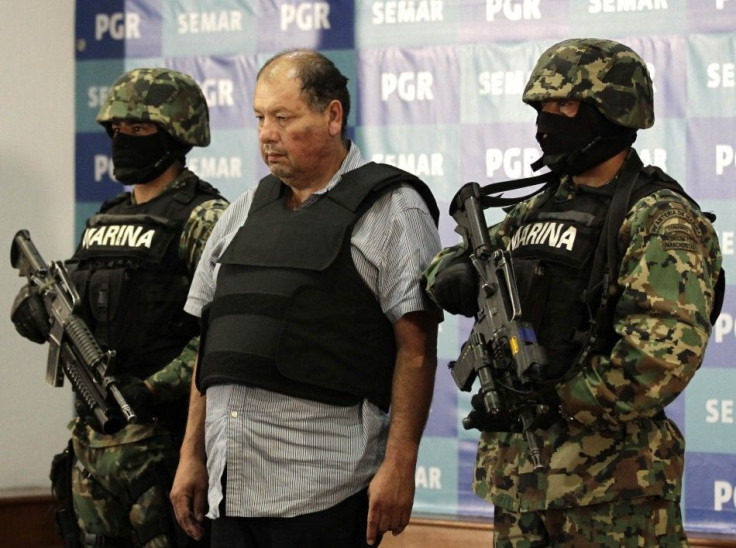Is Mexico’s Brutal Gulf Cartel Finished?
(If so, the Zetas or the Sinaloa Cartel, or both, are there to fill the vacuum.)

UPDATE, 9.37 a.m. -- Mexican authorities said Thursday morning the suspected leader of the Gulf Cartel was arrested Wednesday evening in the port city of Tampico, about 300 miles south of Brownsville, Texas, according to the Associated Press.
Mexico is poised Thursday morning to provide more details about the arrest of Jorge Eduardo Costilla Sanchez, a suspect it believes is one of a dwindling number of key players in the Gulf drug cartel, who was nabbed Wednesday from Mexico's northeastern border state of Tamaulipas.
If confirmed, the arrest of the 41-year-old from the border city of Matamoros would be the second bust in as many days and could mean the Gulf Cartel is on its way down. The Mexican Navy arrested alleged Gulf Cartel capo Juan Gabriel Montes Sermeño in Guadalajara, Jalisco state, after being stopped in a vehicle carrying two other men, assault rifles and drugs.
And these arrests come less than a week after the last of three brothers who led the Gulf Cartel to infamy -- Mario Cardenas Guillen -- was paraded out on national television, escorted by guards wearing masks to protect their identities.
In the past, the arrest of key cartel players has led to the capture of others. Mario's arrest ends the reign of the three Cardenas Guillen brothers: Antonio, 48, was killed in a shootout with authorities in November 2010, and Osiel, 45, was extradited to the U.S. in 2007 and later sentenced to 25 years for money laundering, drug trafficking and threatening the lives of U.S. federal law enforcement agents.
Few details into Costilla's arrest are available. What is known is that the capo known as "El Coss" is one of the country's most wanted men, accused of co-running the Gulf Cartel.
But if the Gulf Cartel is finished, its lucrative smuggling channels could be taken over by its primary rival, the Sinaloa Cartel, which for years has been fighting for control of Gulf's territory, which includes Nuevo Laredo's bustling port of entry into the U.S. But the Zetas -- initially founded as Gulf's personal army of militants and terrorists to take on Sinaloa's attempted incursions -- broke away and has since asserted itself as a third force. The breakaway has been attributed to the killing of a Zeta member in Reynosa in 2010, allegedly ordered by Costilla.
In a web of sub-plots that would rival any Mexican soap opera, it looks like the Gulf Cartel might be losing a battle with both Mexican authorities and its rivals. They all have been linked to acts that would rival Al-Qaeda in their level of brutality and disregard for innocent bystanders, including hanging bodies from bridges, beheadings, shootouts against rivals or cops on crowded streets, and the assassination of journalists that get too close to the truth.
Whether or not the Gulf Cartel is on its way out, its street soldiers and made men could form their own bands or join the opposing teams. Mexico's six-year war against organized drug crime has claimed by most estimates about 50,000 lives -- some argue it's higher than that -- with little end in sight.
© Copyright IBTimes 2024. All rights reserved.












